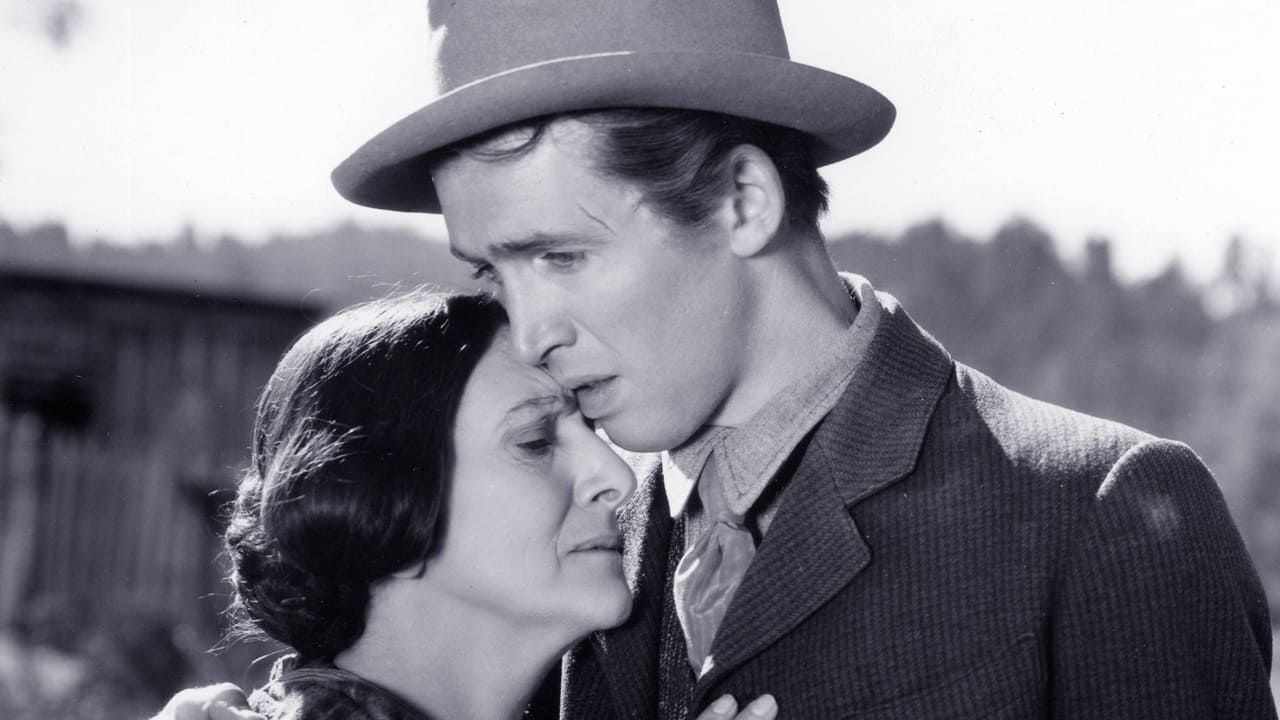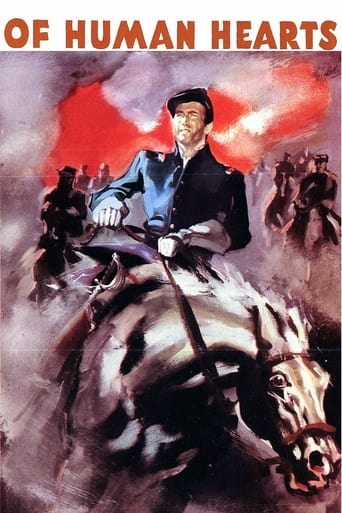Afouotos
Although it has its amusing moments, in eneral the plot does not convince.
Dynamixor
The performances transcend the film's tropes, grounding it in characters that feel more complete than this subgenre often produces.
GarnettTeenage
The film was still a fun one that will make you laugh and have you leaving the theater feeling like you just stole something valuable and got away with it.
Lela
The tone of this movie is interesting -- the stakes are both dramatic and high, but it's balanced with a lot of fun, tongue and cheek dialogue.
utgard14
Jason Wilkins (James Stewart) grows up poor and resentful towards his minister father Ethan (Walter Huston). Ethan is a good man but stern and rigid in his beliefs. Ethan's self-sacrificing wife Mary (Beulah Bondi) tries to balance his hardness by being as kind and gentle to their son as she can. When Jason is older he leaves home to go study to become a doctor. He's supported through this by money his parents send him from things they sell. After Ethan's father dies, Jason begins to neglect his mother more, writing home less and less except to ask for money. Eventually he stops writing altogether.This is an interesting one. I expected after reading some of the lukewarm reviews that it would be a stinker but I actually liked it. It's flawed, for sure, but it's also unique. There is a somewhat muddled message I suppose. The first half of the movie, where Jason is a child (excellently played by Gene Reynolds) creates a sympathetic portrait of him and an unsympathetic one of his father. But after Jason has grown up, he's a selfish ingrate who needs to be slapped around. His father, while still a hard-ass, is shown to have a kinder side and a genuine concern for his fellow man. The two halves do not necessarily have to be out of sync with one another. It's perfectly reasonable to assume that Jason's harsh upbringing has led him to being bitter and selfish. The problem is that the film doesn't seem to take this point of view. Once Jason is an adult, the focus is on his faults only and there's never a hint that his father was ever wrong at all. Add to that the shameful treatment of his saintly mother and Jason becomes downright villainous.Still, it's an interesting drama with a homespun folksy charm and healthy doses of humor sprinkled throughout. The leads are all good. Guy Kibbee, Charles Coburn, Gene Lockhart, Charley Grapewin, and Sterling Holloway are among the wonderful character actors who brighten things up. Adorable Ann Rutherford is always nice to see, even though she gets little to do here but look pretty. The most famous scene from the movie is where Abraham Lincoln (John Carradine) lays the verbal smack down on Jason. This scene is mocked by many but I loved it. Was it hokey? Sure, but it was also fun and added a nice twist to the movie's climax. A better movie than I think its given credit for being. Stewart and Huston fans should enjoy it.
murkbrown
I really liked the look of this movie, the way the period was portrayed. Charles Coburn's performance was very nicely done, understated.I had heard about this film for many years, but had not had an opportunity to see it until recently. If you are not someone who watches a lot of early melodramatic movies I can see why this would not be for you, but I wouldn't let it be known that I'd sat through it five times just so I could speak with authority on how awful a movie it is.Like one of the other writers, I was also puzzled by the loud chirping birds in the background of some of the scenes.I kept waiting for this to be explained but it was not.And the scene withLincoln, I was sure was going to turn out to be a dream sequence, with Jimmy Stewart's character's guilt having caught up with him. But alas, the filmmakers really did want us to believe the President would pull a doctor off the front lines to scold him for neglecting his mother.Overall I liked it. I'll have to watch five more times just to enjoy the old man who leads the choir by striking the tuning fork on his shoe, apparently unable to hear it because he hums in another key, and begins singing in still another.
arun_singh300-1
i had read a lot about the film and recently got the chance to see it on TCM .BELULAH BONDI is really good and essays the role of a mother to perfection.the father's role is strange and scenes of corporal punishment avoidable.the old custom of giving the beating on the ass seems homosexual and incestuous today.he seems too strict and less practical.the father and son fight is quite interesting.the son on his part is insensitive and self centered and doesn't care for his mother's feelings which is evident from the scene where he throws away harper's magazines which his mother had subscribed for by selling two silver spoons.while his mother lives in poverty he squanders money on uniforms.the film is quite good.
telegonus
Antebellum, or pre-Civil War America, is seldom dealt with in movies. In the studio age it was largely ignored. Of Human Hearts is an exception. Set in frontier Ohio it concerns the rebellious son of a decent but inflexible minister who seeks to be a doctor and learn about the world. He get more than he bargained for after the guns fire on Fort Sumter, and the film traces his life from uneasy boyhood to uncomfortable manhood. James Stewart excels in an early lead role; and as his father Walter Huston is suitably starchy and forbidding. The backlot recreation of early small town America is wonderfully realized by director Clarence Brown and Company. There are some splendid supporting performances by, among other, Beulah Bondi, Charlie Grapewin, and especially Charles Coburn, as the village doctor who likes to drink and who becomes Stewart's mentor. As an historical footnote it's worth mentioning that the film was produced by Metro-Goldwyn-Mayer in the late thirties, and is an atypical product for them, as they were poaching, as it were, on movie territory that one associates with the more folsky Fox studios of the time, and did a rather good job at it, too.

